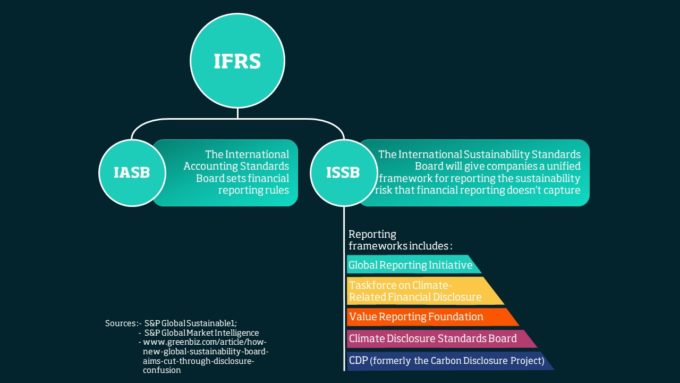Avoiding greenwashing
As well as being rewarded for strong climate action policies, companies also risk being punished if they make empty promises. The United Nations is preparing to set up a greenwashing watchdog to name and shame companies that fail to deliver on net zero commitments. Secretary-General Antonio Guterres told COP26 the UN will create an expert panel to assess net-zero pledges due to concerns over “a deficit of credibility and a surplus of confusion” over emissions reductions. The panel will draw up rules for judging the net-zero commitments of what he called non-state actors, essentially businesses and financial institutions, with particular attention being paid to the use of carbon offsetting tools.
Nevertheless, many businesses are committed to serious action, and several strong commitments were announced by business groups in Glasgow. “Climate is the most important leadership challenge of our time, and good businesses are stepping up,” said Haanaes.
At COP26, former Bank of England governor Mark Carney said his Glasgow Financial Alliance for Net Zero now has $130 trillion of assets available to finance the transition to net zero; the Bezos Earth Fund, IKEA Foundation and Rockefeller Foundation forged an alliance with development finance organizations aimed at mobilising $100 billion for green energy projects in developing countries; and 28 companies from the mining, manufacturing and finance sectors pledged to grow supply and demand for green hydrogen.
However, Professor of Finance Salvatore Cantale says a COP26 pledge to end sales of fossil-fuel powered vehicles by 2040 struggled to win support. While the UK, Canada, the Netherlands and several regional and city governments signed the Glasgow Declaration on Zero Emission Cars and Vans, the US, China and Germany have so far declined to support the agreement. Among leading carmakers, Ford, General Motors and Volvo signed up, while Volkswagen, BMW and Toyota have not, but this is a reflection of a genuine dilemma facing vehicle manufacturers, said Cantale.
“With much uncertainty on the infrastructure that would allow the deployment of this goal and large difference on the speed and pace of change possible in different geographies, as a leader, would you rather commit to a goal that you have no idea whether or how you can achieve, or would you rather say no?” he said. “The stakes are high on both sides of the argument. On the one side there is the risk of being accused of greenwashing but also the opportunity to transform the organization towards a positive goal. On the other, there is the risk of being perceived as a naysayer or uncharismatic leader who lacks a transformational vision.”
Ultimately, though, all businesses will be forced to contribute to action to tackle climate change if they themselves are to avoid becoming obsolete. Businesses that do not do enough face growing transition risks from ever increasing regulation, liability lawsuits for environmental damage and pollution, innovations by competitors and changing investor sentiment, said Schmedders.

Audio available











